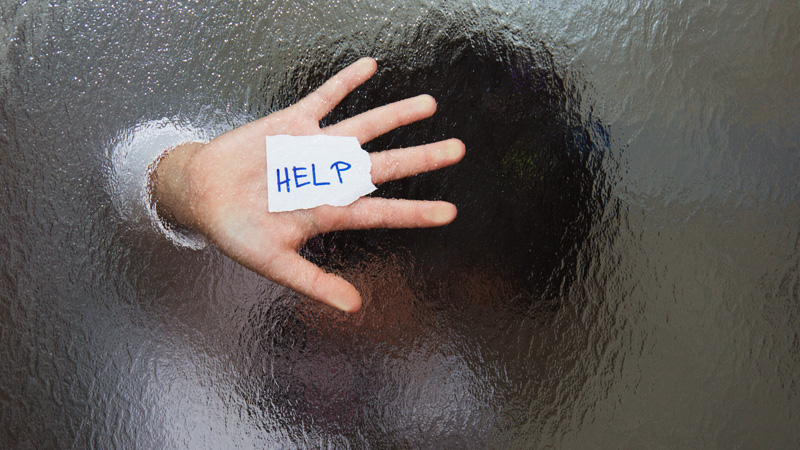Home > Mental Health > PTSD > Physical, Sexual, Emotional Abuse
PHYSICAL, SEXUAL, EMOTIONAL ABUSE
It is highly common for people to consider abuse to be made up solely of physically violent encounters. There are, however, many different types of abuse, and each carry equally harmful consequences for the victim.

General Information
Mental health support can be incredibly helpful for a young person who has experienced any type of abuse.
Physical Abuse
Physical abuse is defined as any deliberate and unwanted physical contact. Physically abusive behaviors may not necessarily leave a physical mark on a teen’s body or even cause pain, but purposeful unwanted contact is still considered abuse. Some examples of physical abuse are: hair pulling, scratching, kicking, biting, pushing, hitting, using a weapon, and grabbing clothes. Please keep in mind that there are many physically abusive acts that have not been listed above. The consequences that can arise in a young person from physical abuse can be not only be physically damaging, but emotionally crippling. There are many types of support available for a person who has endured physical abuse. For young people who have been exposed to physical abuse, it is best to seek the guidance of a mental health professional, as the teen may need extra support in his or her recovery process from the experience or experiences.
Sexual Abuse
Sexual abuse is when a person is pressured into participating in sexual acts or behaviors that he or she does not want to take part in. There is a common misconception that simply because a teenager did not explicitly resist sexual advances that means that he or she consented to them or that it is not considered abuse, which is untrue. Unfortunately, sexual abuse in adolescents is common. Several examples of sexual abuse are as follows: forcing someone to have sex, forcing someone to perform sexual acts, refusing to use condoms, engaging in sexual acts with someone who is unconscious, rape, unwanted kissing, unwanted touching, and unwanted rough or violent sex. It is important to remember that sexual abuse is incredibly traumatic and cause severe mental and physical effects on a young person. There are a number of warning signs to look out for regarding a teenager who may have been sexually abused, which are: weight fluctuation, bruising, depression, genital infections, unhealthy eating patterns, anxiety, self-harming behaviors, and suicidal ideation. There are many ways to help treat a young person who has experienced sexual abuse. If there is concern about your teen and sexual abuse do not hesitate to seek help.
Emotional Abuse
Emotional abuse is comprised of non-physical abusive behaviors. These can include, but are not limited to: stalking, threatening, projecting blame, attempting to control access to one’s family or friends, trying to control clothing choices, yelling, name calling, insults, or intentionally publically embarrassing someone. Though emotional and verbal abuse may not be seen on one’s physical body, the harm that is caused can be equally as painful. Emotional abuse can result in a young person to begin to believe the words of his or her abuser. This can lead to a diminished self-esteem and lowered confidence levels. Therapeutic help can be beneficial for a young person who has experienced emotional abuse. Learning to reverse the damage caused by the emotional abuse can help an adolescent grow to have healthy relationships and not get stuck in a cyclical pattern of abuse.

Further Information
Every family in need of mental health treatment must select a program that will best suit the needs of their family. When one member of a family struggles, it impacts everyone in the family unit. In order to maximize the benefits of treatment we work closely with the entire family to ensure that everyone is receiving the support they need through these difficult times.
Seeking help is never easy, but you are not alone! If you or someone you know is in need of mental health treatment, we strongly encourage you to reach out for help as quickly as possible. It is not uncommon for many mental health difficulties to impact a person’s life, long term. Seeking support at the beginning of one’s journey can put the individual in the best position to learn how to manage themselves in a healthy way so they can go on to live happy and fulfilling lives.
Our admissions team can be reached 24/7 at info@pacificrtc.com or call: Phone Number,(800) 531-5769
We are available to answer any questions you may have regarding mental health treatment and our residential program, anytime. Contact us today using the form to the right.

